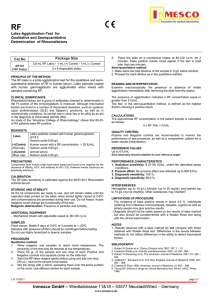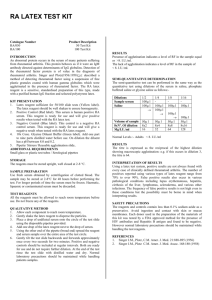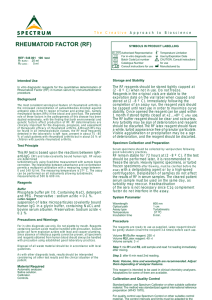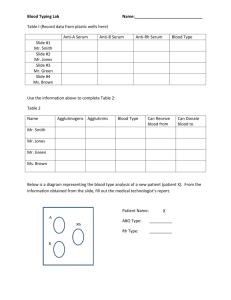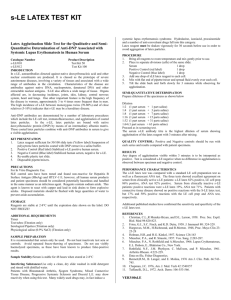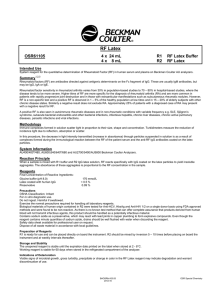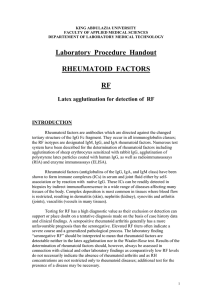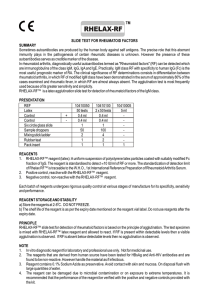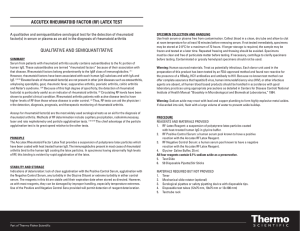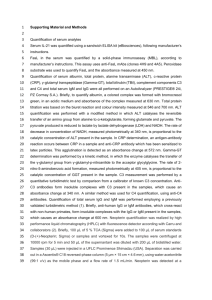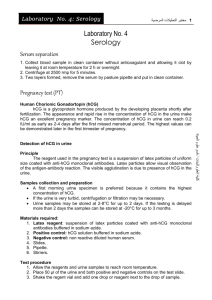Detection of rheumatoid factors in human serum samples
advertisement
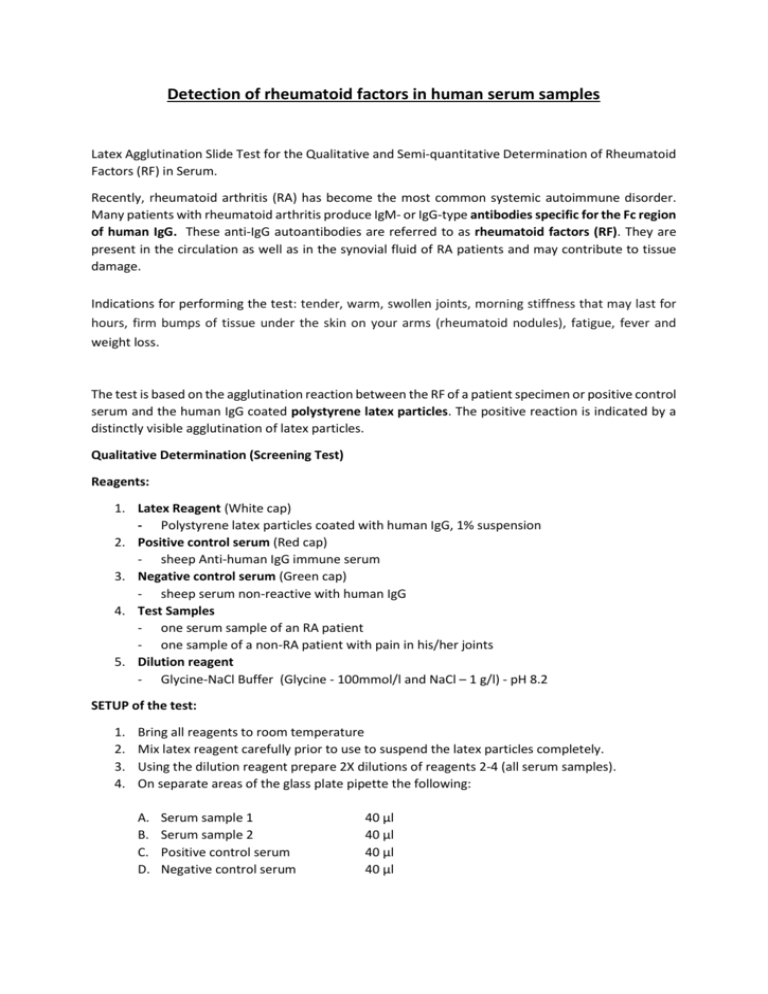
Detection of rheumatoid factors in human serum samples Latex Agglutination Slide Test for the Qualitative and Semi-quantitative Determination of Rheumatoid Factors (RF) in Serum. Recently, rheumatoid arthritis (RA) has become the most common systemic autoimmune disorder. Many patients with rheumatoid arthritis produce IgM- or IgG-type antibodies specific for the Fc region of human IgG. These anti-IgG autoantibodies are referred to as rheumatoid factors (RF). They are present in the circulation as well as in the synovial fluid of RA patients and may contribute to tissue damage. Indications for performing the test: tender, warm, swollen joints, morning stiffness that may last for hours, firm bumps of tissue under the skin on your arms (rheumatoid nodules), fatigue, fever and weight loss. The test is based on the agglutination reaction between the RF of a patient specimen or positive control serum and the human IgG coated polystyrene latex particles. The positive reaction is indicated by a distinctly visible agglutination of latex particles. Qualitative Determination (Screening Test) Reagents: 1. Latex Reagent (White cap) - Polystyrene latex particles coated with human IgG, 1% suspension 2. Positive control serum (Red cap) - sheep Anti-human IgG immune serum 3. Negative control serum (Green cap) - sheep serum non-reactive with human IgG 4. Test Samples - one serum sample of an RA patient - one sample of a non-RA patient with pain in his/her joints 5. Dilution reagent - Glycine-NaCl Buffer (Glycine - 100mmol/l and NaCl – 1 g/l) - pH 8.2 SETUP of the test: 1. 2. 3. 4. Bring all reagents to room temperature Mix latex reagent carefully prior to use to suspend the latex particles completely. Using the dilution reagent prepare 2X dilutions of reagents 2-4 (all serum samples). On separate areas of the glass plate pipette the following: A. B. C. D. Serum sample 1 Serum sample 2 Positive control serum Negative control serum 40 µl 40 µl 40 µl 40 µl 5. 6. 7. 8. Add 1 drop of RF Latex Reagent to all samples and controls. Mix them carefully (to avoid making bubbles) Shake slowly the samples for 2 minutes on an automated rotator at 100 r.p.m. 5-10 minutes later read the results under a bright artificial light. Evaluate agglutination reactions! Determine which test sample is taken from the RA patient and which one from a patent with osteoarthritis the!
